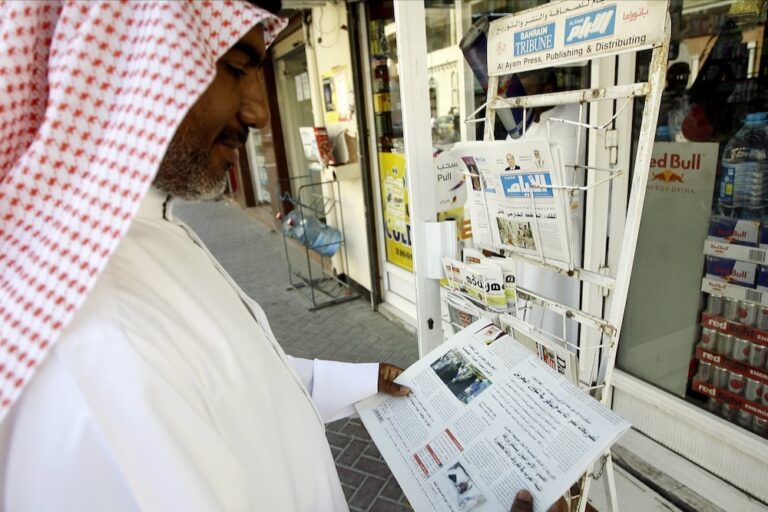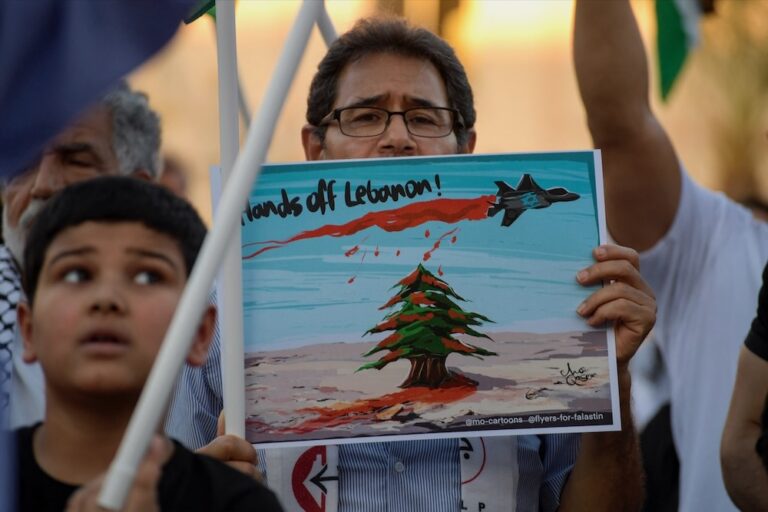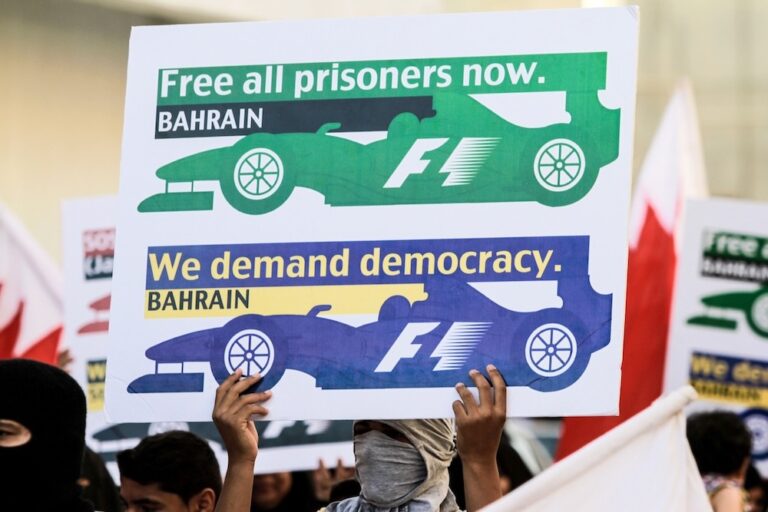IFEX joins civil society organisations from around the world in urging the UN, governments, and the diplomatic community to urgently call on Bahraini authorities to release human rights defender Abdul-Hadi al-Khawaja.
To: United Nations Secretary General and diplomatic Missions
United Nations Special Rapporteurs/Targeted Governments
Re: Urgent call to release Abdul-Hadi al-Khawaja on his 60th birthday and 10th anniversary of his detention
Your Excellencies,
We the undersigned, representing civil society organisations from around the world, write to bring to your urgent attention the continued detention of human rights defender Abdul-Hadi Abdulla Hubail al-Khawaja. As you may be aware, al-Khawaja, who is a dual Bahraini-Danish citizen, is currently serving a life sentence for his peaceful human rights activities. As he marks his 10th year in prison and commemorates his 60th birthday on 5 April 2021, we urge the United Nations through its Secretary General, governments around the world and representatives of the diplomatic community to urgently call on Bahraini authorities to release him immediately and unconditionally.
Al-Khawaja’s active campaigning for human rights began when he was 16 years old. Spanning decades of activism, he is the co-founder of both the Gulf Centre for Human Rights (GCHR) and the Bahrain Center for Human Rights (BCHR) of which he was also President. Until early 2011, al-Khawaja worked as MENA Protection Coordinator for human rights group Frontline Defenders. He also previously took part in a fact-finding mission to Iraq in 2003 with Amnesty International and is a member of the International Advisory Network of the Business and Human Rights Resource Centre. He is a peaceful advocate of human rights and the recipient of several human rights awards, including the “World without Torture” Award which he received in October 2013 in recognition of his struggle for human rights.
He was arrested on 9 April 2011 for his role in organising peaceful protests to defend the realisation of human rights of Bahrainis and for political reform during the popular ‘Arab Spring’ movements which began in Bahrain in February 2011. He was violently detained by security forces as detailed in a report by the Bahrain Independent Commission of Inquiry (BICI) published in November 2011 at the request of the King of Bahrain. He is serving a life prison sentence in Jau prison following unfair trials in courts that did not comply with Bahraini criminal law or international fair trial standards.
At its 63rd session in April/May 2012, the UN Working Group on Arbitrary Detention considered that al-Khawaja’s arrest was arbitrary as it resulted from his exercise of the rights to freedom of expression, association and peaceful assembly.
On 17 March 2021, GCHR in co-operation with its human rights partners Americans for Democracy & Human Rights in Bahrain (AHRDB), BCHR, the International Federation for Human Rights (FIDH), and the World Organisation Against Torture (OMCT), released a report detailing some of the ill-treatment and torture al-Khawaja has faced during his arrest and subsequent arbitrary detention. This has included severe physical, psychological and sexual torture.
During his early detention, al-Khawaja suffered multiple fractures to his jaw and has undergone multiple surgeries but still suffers from chronic pain and requires additional intervention as he has not healed properly. His facial bone structure is permanently damaged. In January 2021, over 100 NGOs appealed to the Danish government to help free al-Khawaja so he could travel to Denmark for treatment.
In a January 2021 phone call, al-Khawaja listed four concerns including that prison authorities placed restrictions on his phone calls with the family (that have replaced their in-person visits) and confiscated hundreds of his books and other materials. He also stated that prison authorities arbitrarily deny him adequate healthcare and refuse to refer him to specialists for the urgent surgeries he requires. Denying a prisoner needed medical care violates the United Nations Standard Minimum Rules for the Treatment of Prisoners, known as the Nelson Mandela Rules.
Al-Khawaja continues to protest the arbitrary detention to which he is subjected. Since his arrest, he has undertaken six-hunger strikes, one lasting 110 days in 2012 to protest conditions in Jau Prison and his unjust imprisonment.
In March 2020, at the start of the Covid-19 pandemic, Bahrain released 1,486 prisoners, 901 of whom received royal pardons on “humanitarian grounds.” However, al-Khawaja and other prominent human rights defenders – many of whom are older or suffer from underlying medical conditions – were not among those released.
On 11 March 2021, the European Parliament voted overwhelmingly in a plenary session to adopt an urgent resolution condemning human rights abuses in Bahrain, including the persecution of human rights defenders, lawyers and other civil society figures, while calling on Bahrain’s government to enact reforms. The resolution calls for the release of al-Khawaja and others “who have been detained and sentenced for merely exercising their right to freedom of expression.”
On al-Khawaja’s 60th birthday and the 10th anniversary of his arrest we appeal to you to personally hold talks with the government of Bahrain to immediately and unconditionally release him.



